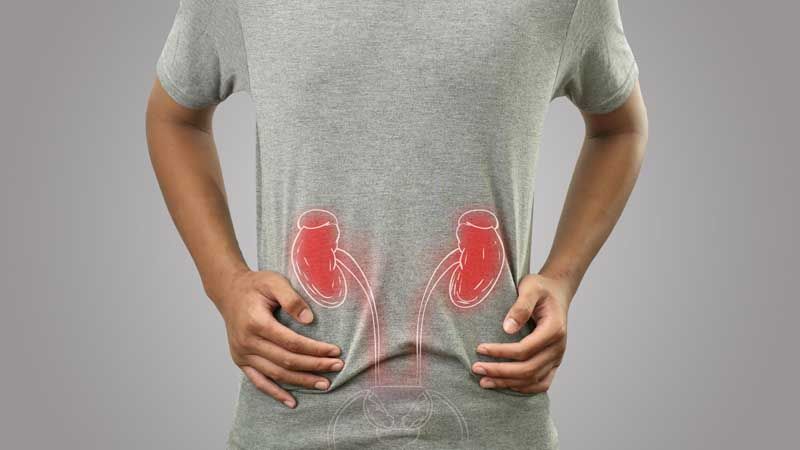Maintain Your Oral Health During Pregnancy!
- 9 months ago
Pregnancy brings numerous changes to a woman's body, and oral health is no exception. Hormonal fluctuations can make gums and teeth more susceptible to issues, making it essential to maintain good dental hygiene. This blog highlights the importance of oral health during pregnancy, how to care for your teeth, and common dental concerns to be aware of.
Why Oral Health Matters in Pregnancy?
Maintaining oral health during pregnancy is crucial not only for your own well-being but also for your baby’s health. Neglected oral issues, especially gum disease, may increase the risk of complications such as preterm birth and low birth weight. Additionally, poor dental hygiene can introduce harmful bacteria, affecting both you and your baby.
Key Reasons to Prioritize Dental Care During Pregnancy
- Hormonal changes: Increased hormone levels can make gums more vulnerable to plaque buildup, leading to a higher risk of gum disease.
- Risk of Pregnancy Gingivitis: Many pregnant women experience swollen, bleeding gums due to hormonal changes, which can worsen without proper oral care.
- Impact on Baby’s Health: Studies have linked gum disease to pregnancy complications, emphasizing the importance of maintaining oral hygiene.
How to Maintain Good Oral Health During Pregnancy?
Caring for your teeth can be simple and hassle-free. Follow these simple steps to ensure your oral health remains in top shape:
Brush Twice a Day
Use fluoride toothpaste and a soft-bristled toothbrush to gently clean your teeth for at least two minutes. Brushing twice daily helps prevent plaque buildup and tooth decay. Don’t forget to clean your tongue to remove bacteria and keep your breath fresh.
Floss Regularly
Flossing removes food particles and plaque between your teeth that brushing alone can’t reach. A daily flossing routine helps prevent gum disease and reduces plaque buildup.
Use an Alcohol-Free Mouthwash
An antibacterial mouthwash can help control plaque and bacteria while keeping your breath fresh. Opt for a mouthwash suitable for sensitive gums to avoid irritation.
Stay Hydrated
Pregnant women are more prone to dry mouth, which can increase the risk of cavities and gum problems. Drinking plenty of water throughout the day helps wash away bacteria and food particles while keeping your mouth moist.
Follow a Nutrient-Rich Diet
A well-balanced diet benefits both you and your baby. Consume foods high in calcium, such as dairy products, leafy greens, and fortified cereals, to promote strong teeth and bones. Reduce your intake of sugary snacks and drinks to help protect your teeth from decay.
Schedule Regular Dental Checkups
Routine dental visits are essential during pregnancy. Let your dentist know if you're pregnant so they can take the right precautions for your safety. Professional cleanings and checkups can help detect and prevent oral health issues early on.

Also Read: How Can Exercise Improve Oral Health?
Common Oral Health Problems During Pregnancy
Pregnancy increases the risk of certain oral health concerns. Be mindful of these potential issues:
- Pregnancy Gingivitis: Elevated hormone levels, especially progesterone, can cause gums to become swollen, inflamed, and prone to bleeding—a condition known as pregnancy gingivitis. Regular brushing and flossing can help manage this issue.
- Tooth Erosion Due to Morning Sickness: Frequent vomiting can expose teeth to stomach acids, leading to enamel erosion. To protect your teeth, rinse your mouth with water or fluoride mouthwash after vomiting and wait at least 30 minutes before brushing.
- Pregnancy Tumors: Some pregnant women develop small, red growths on their gums, known as pregnancy tumors. These benign lumps often appear between teeth and may cause discomfort or bleeding but usually disappear after childbirth. Good oral hygiene can help manage them.
- Dry Mouth: Hormonal changes or dehydration during pregnancy can lead to dry mouth, increasing the risk of cavities and gum disease. Staying hydrated, using saliva substitutes, and chewing sugar-free gum can help stimulate saliva production.
Dental Treatments During Pregnancy: What You Need to Know?
If you require dental treatment during pregnancy, inform your dentist so they can take appropriate precautions. Most routine procedures are safe, particularly in the second trimester. However, it’s advisable to avoid non-essential treatments during the first and third trimesters.
Safe Dental Procedures During Pregnancy:
- Routine cleanings and exams
- Fillings and minor dental work
- Local anesthesia (administered with caution)
Treatments to Avoid:
- X-rays (unless absolutely necessary)
- Certain medications or procedures (always discuss with your dentist)
Final Thoughts
Maintaining good oral health is essential for both you and your baby during pregnancy. By following a proper oral hygiene routine, eating a balanced diet, staying hydrated, and visiting your dentist regularly, you can lower the risk of dental problems. Always consult your healthcare provider and dentist to ensure safe and effective oral care.
Taking care of your teeth during pregnancy not only enhances your well-being but also contributes to a healthier pregnancy. Keep up with regular dental checkups, maintain good oral hygiene, and embrace this special phase of life with confidence, knowing you're prioritizing both your health and your baby's








